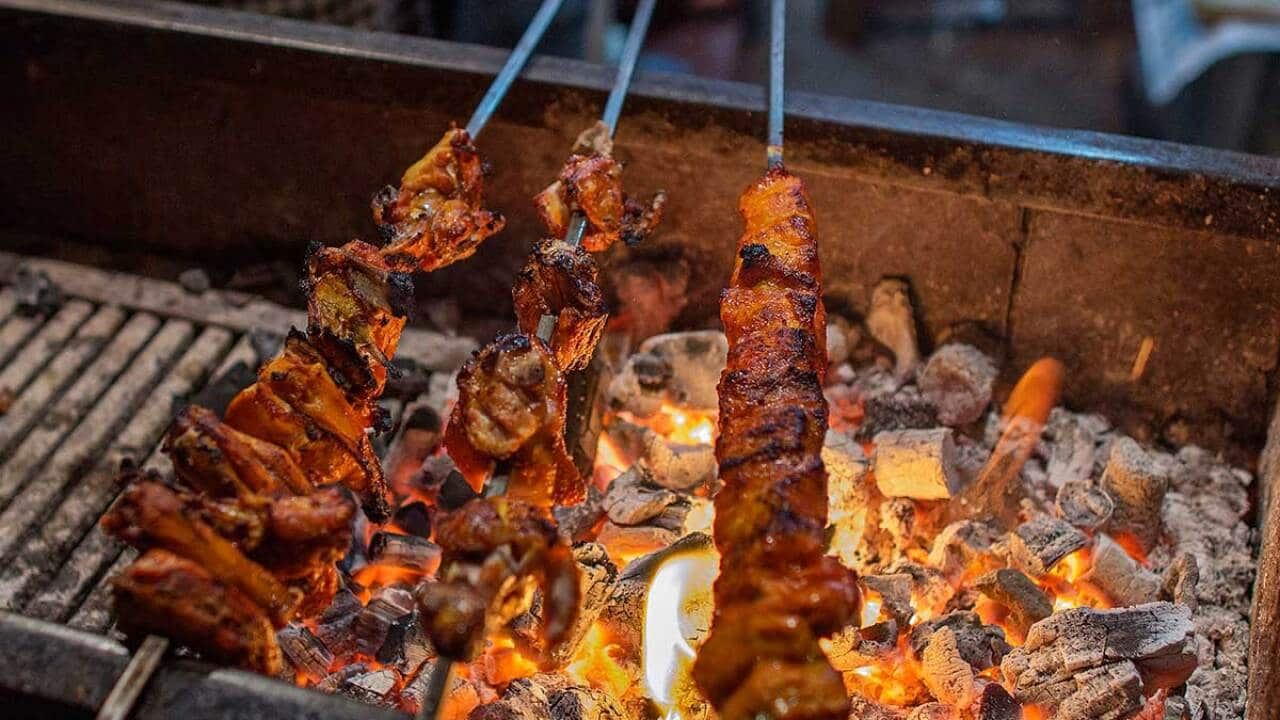You walk in the door at a restaurant and catch the smoky scent of burning wood. This is a good sign. The flavour that charcoal – which is essentially wood or another natural substance that has been heated without oxygen to create an almost pure carbon – adds to dishes is unmistakable. Unmistakably delicious.
Chef Somer Sivrioglu of Sydney’s Efendy and Anason restaurants has recently come back from a trip to the city he grew up in, Istanbul, where he rediscovered his love of what he calls ‘charcoal restaurants.’ “Eating out in our [Australian] style of restaurant in Turkey is only a 30 to 40-year-old phenomenon," he tells SBS. "We didn’t have restaurants; we just had worker men’s cafes that they would go to at lunchtime. Apart from that, the only kind of restaurants would be charcoal restaurants, just because of the convenience – people wouldn’t be able to do it at home.”
Sivrioglu has now taken the plunge and transformed Efendy into a charcoal restaurant. “We always had a few charcoal dishes at Efendy but now that Anason is open as well, we thought we might just go all guns blazing,” he says, “So now we have a big charcoal pit and two Turkish-style kebab barbecues, and we are cooking all of our main dishes over charcoal.” Even some desserts are cooked over charcoal, like their knafeh, a syrup-drenched pastry filled with cheese, faintly smoky from the grill.
Of course, Sivrioglu isn’t the only chef in Australia dedicating his craft to burnt wood. After six years cooking over fire at the Basque Country’s Asador Etxebarri, chef Lennox Hastie determined that his own restaurant, Sydney’s Firedoor, would also be powered by wood fire, and every dish on the menu, cooked over it. Sourcing and buying top quality charcoal is a “minefield,” he says, and so at Firedoor he opts to select the wood and burn it in-house himself. “The Japanese are masters of most of their skillsets but in terms of charcoal production it’s something they’ve been doing for many, many thousands of years,” says Hastie, “They’ve essentially produced the purest form of charcoal which is binchotan – which is a specific type of wood burnt in a particular type of way. The result is the purest form of charcoal available. Because of that process, it’s extremely expensive.” One day he’d love to make his own, Australian version. “I’m highly interested in making charcoal in the future, to source the wood, looking at certain types of trees at certain times of the year. I’d love to make an Australian binchotan.”
Indigenous Australians have a particularly close, and lasting, relationship with charcoal. Author of Dark Emu and Indigenous food historian, Bruce Pascoe, explains. “Charcoal was used as a body paint and an art colour,” he says, “and inevitably we cooked over charcoal because we did (and still do) rake out the coals from the burnt down timber in our fires because they provide the most thorough cooking medium.”
“Aboriginal people have been cooking in ground ovens, in hollow trees and open fires for 80,000 years minimum,” he says.
And thankfully for home cooks, charcoal isn't just for restaurants. Get your char on with Food Safari's charcoal chicken with piri piri sauce, or this easy Chilean pork belly, marinated and then cooked to a meltingly tender finish.

“It just tastes better,” says Hastie, “it enhances the natural flavour of the ingredient.” Sivrioglu agrees: “Charcoal is a flavouring agent.” It’s a taste that signifies and recalls our primitive selves, cooking over burnt wood as we have been doing for thousands of years, across the world. Maybe we’d lost our way a bit, but now things are coming full circle. “Fire is all encompassing,” says Hastie, “it’s not just one particular cuisine, it’s all cuisines.”
Have we got your attention and your tastebuds? Tune in 6pm weeknights as this week it's all about Turkish cuisine on The Chefs' Line. Check out the program page for episode guides, cuisine lowdowns, recipes and more.
SBS Food is a 24/7 foodie channel for all Australians, with a focus on simple, authentic and everyday food inspiration from cultures everywhere. NSW stream only. Read more about SBS Food
Have a story or comment? Contact Us




